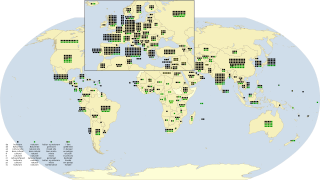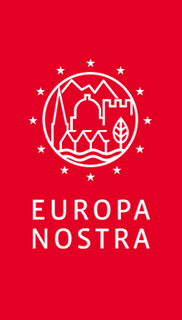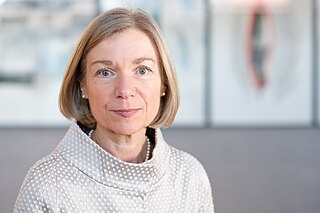
A World Heritage Site is a landmark or area which is selected by the United Nations Educational, Scientific and Cultural Organization (UNESCO) as having cultural, historical, scientific or other form of significance, and is legally protected by international treaties. The sites are judged important to the collective interests of humanity.

Cultural diversity is the quality of diverse or different cultures, as opposed to monoculture, the global monoculture, or a homogenization of cultures, akin to cultural decay. The phrase cultural diversity can also refer to having different cultures respect each other's differences. The phrase "cultural diversity" is also sometimes used to mean the variety of human societies or cultures in a specific region, or in the world as a whole. Globalization is often said to have a negative effect on the world's cultural diversity.

The European Capital of Culture is a city designated by the European Union (EU) for a period of one calendar year during which it organises a series of cultural events with a strong pan-European dimension.

European Union culture policies aim to address and promote the cultural dimension of European integration through relevant legislation and government funding. These policies support the development of cultural activity, education or research conducted by private companies, NGO's and individual initiatives based in the EU working in the fields of cinema and audiovisual, publishing, music and crafts.

Cultural heritage is the legacy of physical artifacts and intangible attributes of a group or society that is inherited from past generations.
The Register of the National Estate was a heritage register that listed natural and cultural heritage places in Australia that was closed in 2007. It has been replaced by the Australian National Heritage List and the Commonwealth Heritage List and various state and territory heritage registers.

As of July 2018, there are a total of 1,092 World Heritage Sites located in 167 States Parties, of which 845 are cultural, 209 are natural and 38 are mixed properties. The countries have been divided by the World Heritage Committee into five geographic zones: Africa, Arab States, Asia and the Pacific, Europe and North America, and Latin America and the Caribbean. The country with the largest number of sites is Italy, with 54 entries. The country with the largest number of sites by itself alone is China, with 53 entries.

European Heritage Days (EHD) is a joint action of the Council of Europe and the European Commission involving all 50 signatory states of the European Cultural Convention under the motto, Europe: a common heritage. The annual programme offers opportunities to visit buildings, monuments and sites, many of which are not normally accessible to the public. It aims to widen access and foster care for architectural and environmental heritage. These events are also known as Doors Open Days and Open Doors Days in English-speaking countries.

Europa Nostra is a pan-European Federation for Cultural Heritage, representing citizens’ organisations that work on safeguarding Europe's cultural and natural heritage. It is the voice of this movement to relevant international bodies, in particular the European Union, the Council of Europe and UNESCO. It has consultative status with UNESCO and is recognised as an NGO partner.

The National Heritage Board is a statutory board of the Singapore Government, under the Ministry of Culture, Community and Youth (MCCY).

Europeana.eu is the EU digital platform for cultural heritage. More than 3,000 institutions across Europe have contributed to Europeana. These range from major international names like the Rijksmuseum in Amsterdam, the British Library and the Louvre to regional archives and local museums from every member of the European Union. Together, their assembled collections let users explore Europe's cultural and scientific heritage from prehistory to the modern day. Mona Lisa by Leonardo da Vinci, Girl with a Pearl Earring by Johannes Vermeer, the works of Charles Darwin and Isaac Newton and the music of Wolfgang Amadeus Mozart are some of the highlights on Europeana.

The United Nations Educational, Scientific and Cultural Organization is a specialized agency of the United Nations (UN) based in Paris. Its declared purpose is to contribute to peace and security by promoting international collaboration through educational, scientific, and cultural reforms in order to increase universal respect for justice, the rule of law, and human rights along with fundamental freedom proclaimed in the United Nations Charter. It is the successor of the League of Nations' International Committee on Intellectual Cooperation.
The Independent Music Companies Association is a non-profit trade body established in April 2000 to help European independent music companies represent their own agenda and promote independent music in the interests of artistic, entrepreneurial and cultural diversity. Its offices are in Brussels, Belgium.

European Destinations of ExcelleNce, also known by the acronym EDEN, is an initiative launched by the European Commission promoting sustainable tourism development models across Europe. The project is based on national competitions which take place every year since 2006 and results in the selection of a “destination of excellence” for each participating country. The winners are emerging, lesser known destinations located in the 27 EU Member States, the Candidate Countries and the EFTA/EEA countries.
The Saltire Society is a membership organisation which aims to promote the understanding of the culture and heritage of Scotland. Founded in 1936, the society was "set up to promote and celebrate the uniqueness of Scottish culture and Scotland’s heritage, and to reclaim Scotland’s place as a distinct contributor to European and international culture." The society organises lectures and publishes pamphlets, and presents a series of awards in the fields of art, architecture, literature and history.
“Monumentalized Early Iron Age Landscapes in the Danube river basin”

Elisabeth Niggemann is a German librarian specializing in the digitization of cultural heritage resources. Since 1999 she has been the Director General of the German National Library.














